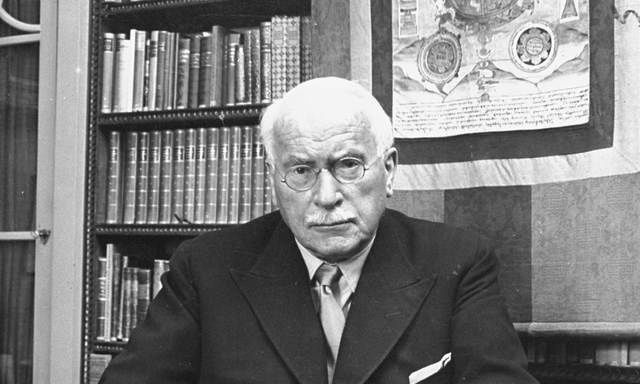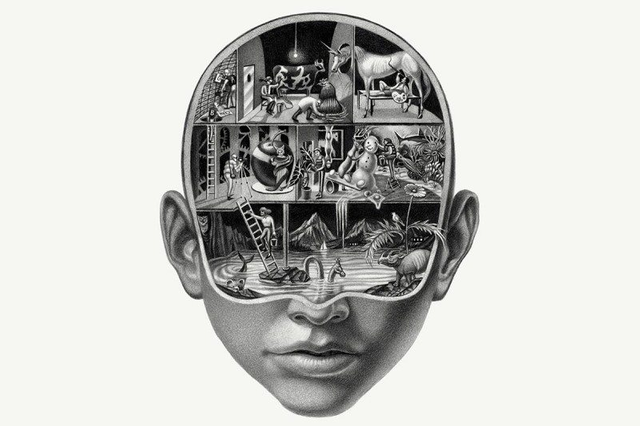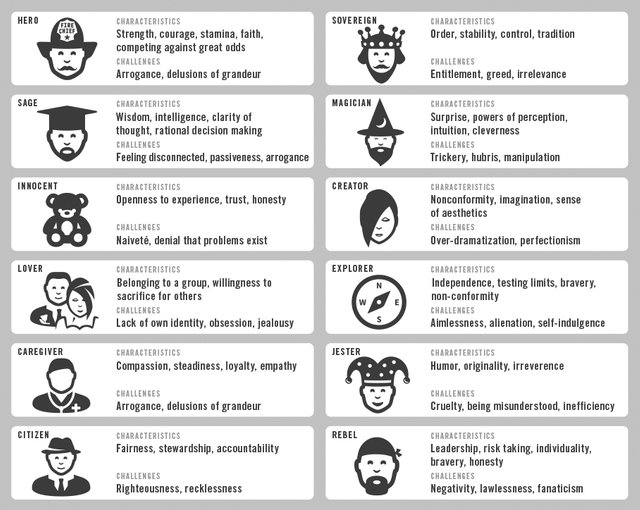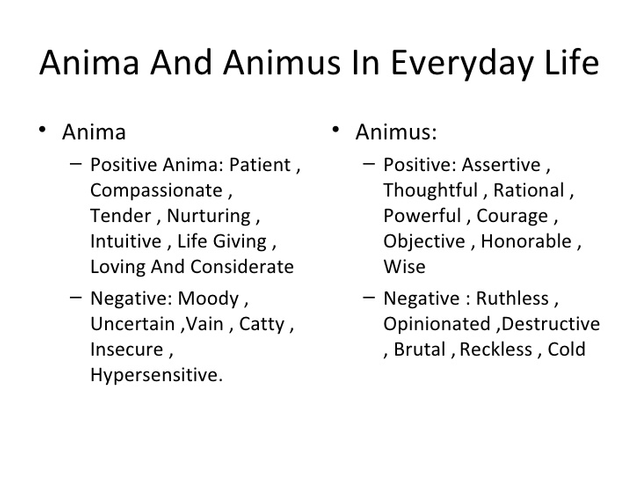Carl Gustav Jung and the Jungian Psychology A wise and somewhat forgotten Psychologist

Throughout the time I've found myself reading a lot of Carl Jung's publications and work. A man dedicated to unraveling the great mysteries of the self. What set apart Jung from other philosophers, mystics and men of knowledge was his attempt to relate and describe our inner working as much as possible with known Psychology. Hence a new breed of Psychology was born, named " Jungian Psychology ".
Jung has many books related to psychological subjects, written in his own unique style of interpretation.
I'd like to dedicate this article to his work and share with you all some insight into it. So I will dedicate a small section of his most valued topics, starting with.
The Unconscious

Jung believed that the unconscious mind of the Human being is a potent part of the Human being, probably the more potent one.
He describes the Unconscious mind being composed of two main sections. The personal Unconscious and the Collective Unconscious.
The collective unconscious contains archetypes common to all human beings.
Jung's concept of the collective unconscious has often been misunderstood and is spread into many branches, so to fully grasp this part one would need to read a lot of his work. He has a book called " The Collective Unconscious".
Archetypes

Jung had developed his concept of the Archetypes revolving around 12 common Human Archetypes.
In Jungian psychology, archetypes are highly developed elements of the collective unconscious. The existence of archetypes can only be deduced indirectly by using story, art, myths, religions, or dreams.
But on a short note, these archetypes are common for every person, so if one is to look at them, at least one of them will be matching the individual.
You can have a look here: http://www.soulcraft.co/essays/the_12_common_archetypes.html
Self-realization and neuroticism

Jung was famous for his theory of the Individuation process. A process which one given person goes through to find his utmost complete and positive of aspirations.
According to him, self-realization is attained through individuation. In the first half of our lives, we separate from humanity. We attempt to create personal identities ("I". "Myself"). Hence this is the main reason why young individuals find themselves and need be so destructive.
Jung also mentions we have a sort of "second puberty" that occurs between ages 35 and 40: outlook shifts from emphasis on materialism, sexuality, and having children to concerns about community and spirituality.
In the second half of our lives, humans tend to reunite with humanity. They become part of the collective once again. This is when adults start to contribute to Humanity rather than destroy.
If a person does not proceed toward self-knowledge, neurotic symptoms may arise. Symptoms are widely defined, including, for instance, phobias, psychosis, and depression.
The Shadow
In Jung's words, the shadow is a complex human complex that contains a compendium of repressed or/and unwanted traits.
According to him, the Human being deals with this complex in four main ways. Denial, projection, integration and/or transmutation.
According to analytical psychology, the "Shadow" may contain both destructive and constructive aspects.
The shadow can represent those things that people find unacceptable for themselves. For instance, the shadow of someone who identifies as being kind may be harsh or unkind.
The shadow is often represented as a dark figure within one's dreams or as the same gender as the person himself.
Psychoanalysis
Psychoanalysis is a way to integrate and work around these unconscious segments of the Human being. The most common example for this would be Dream Interpretation. Other methods might include creative expression, by writing drawing and such. Where the individual can express hidden segments through an abstract expression.
Anima/Animus

As in Hinduism where it is related to Female and Male Energy, the terminology "Anima/Animus" tends to represent the same concept but with a different interpretation.
Jung believes that the Anima is connected to the Male and the Animus is connected to the female.
Anima being female energy, Animus being Male energy.
Despite the aforementioned by him, I stand to believe that both traits can be found within one given individual. Rather one of them being repressed given the gender of that individual.
The anima is related to our, inner feelings emotions and such, where the Animus is represented as the expression in the conscious extroversive world.
Carl Gustav Jung and the Jungian Psychology


I try to keep my content as Original as possible, also I never use up voting automation. If you get an up vote from me, then I love what you do !

I took a psychology course in college and my psychology teacher was brilliant. He told us all that if we want to live a good, meaningful life, we should read the works of Carl Jung and right he was. I have read Jung and the more I read about his work, the better I understand how my mind works. The 'shadow' concept is just amazing and so is this post. :)
Thats amazing ! We used to learn some stupid psychology in school, it was beyond dull.
Lovely to see you've actually seen his work <3
Not a lot, but yes I have read some of it and also have a book by him with me which I plan to read but somehow never do so.
I've read more Freud than Jung, but the part that interests me more is that about the collective unconscious. I find that fascinating how we are shaped by experiences of some distant ancestors.
Both Freud and Jung seem to be in the same area of research. I do recommend reading his book related to the unconscious, its quite the in depth subject .
Hooray for Carl Jung. Thanks for writing this article. I have been wanting to read more of his work. He really was quite wise.
Jung is so underrated and ignored.. Sadly..
"You can dismiss a thing entirely, but you have to search for its symbolic meaning, and the symbolic meaning is the thing that has to be accepted. The best way of dealing with the unconscious is the creative way. Create for instance a fantasy. Work it out with all the means at your disposal. Work it out as if you were it or in it, as you would work out a real situation in life which you cannot escape. All the difficulties you overcome in such a fantasy are symbolic expressions of psychological difficulties in yourself, and inasmuch as you overcome them in your imagination you also overcome them in your psyche."
C. G. Jung, letter to Mrs N, 25th of November 1932, Letters vol 1 pg 109.
Hey @vangelov, thanks for compiling the main features of Jungian psychology. It is a very useful introduction for beginners, indeed. I really appreciated the link with the 12 archetypes, very good resource.
I've also been studying, directly and indirectly, Jung's teachings. I have done a lot of work with the shadow and I can totally agree how integrating the shadow liberates so much creative energy and contributes to the process of individuation and self-realisation.
Thanks for bringing Jung back into my awareness, and in return I would like to recommend you check the work of his Italian contemporary, Roberto Assagioli who is the founder of Psychosynthesis. It is a fascinating, holistic psychology of the soul. Assagioli resonated and corresponded a lot with Jung, but has some other interesting things.
I am going to do a two year training (most surely) in psychosynthesis in London beginning next October. Last weekend I attended a fundamentals course, and omg I learnt so much. It combines the Western psychology of the personality with Eastern philosophies of meditation and transcendence in perfect synergy. I definitely recommend you check this out!
I'm going to write up a post about that soon, so I'll let you know if you're interested to find more about this from my perspective.
This is such a good summary! I've been really interested in Jingian psycho.ogy for over 10 years but it's just so complex that to read through this outline was really helpful. I did art therapy for a couple of years and a lot of it was based around Jungian themes. So I would recount dreams, and sometimes paint them or mould clay. It was really interesting that the more we did this, the richer my dreams became. I got so much out of that process!